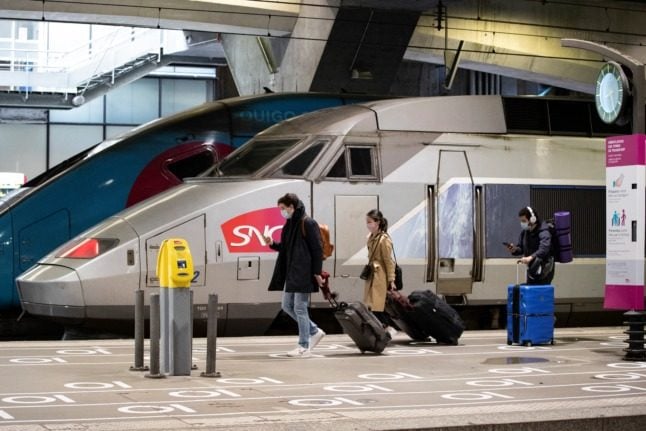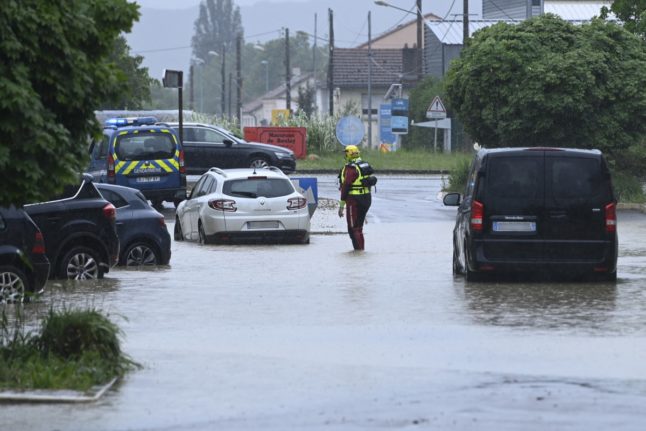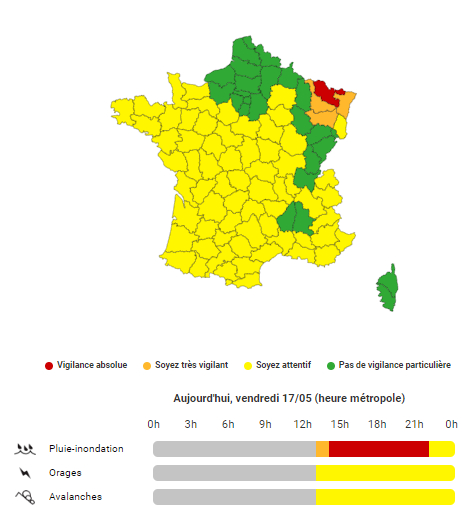On August 9th, “the extended health pass will come into effect with, in the beginning, a period of adaptation, of tolerance, of pedagogy” of around one week, government spokesperson Gabriel Attal said in a press conference on Wednesday afternoon.
Here’s what to expect if you are planning to travel around the country this summer:
Trains
For long-distance trains, meaning TGVs, intercités and night trains, you will need to show a health pass if you are older than 17 years old. Travelers between 12 to 17 will need a health pass starting from September 30th.
The pass will not be needed for city public transport networks or local TER trains.
Speaking to BFM, transport minister Jean-Baptiste Djebbari said checks will mainly be carried out in stations, before and after travelling, but there will also be “random checks” on board the trains.
READ ALSO Health passport: What changes in France on August 9th?
“We’re going to try to do it in the most fluid and operational way possible in order to have a good rate of checks, and at the same time avoid making passengers’ lives difficult,” Djebbari said. He added there would not be “systematic” checks, “in the same way that, during the curfew, there were not systematic checks on people who were going out.”
Wearing a mask remains mandatory in trains at least until August 30th, when the health pass becomes mandatory for people working on trains.
The SNCF – the French national railway company – will reimburse travelers if they test positive before their date of departure, according to Djebbari.
Covid-19: les personnes testées positives avant de prendre le train ou l'avion pourront être remboursées, garantit Jean-Baptiste Djebbari (@Djebbari_JB) pic.twitter.com/OxUMrneBBv
— BFMTV (@BFMTV) July 28, 2021
Passengers are currently able to receive a refund on train tickets by cancelling up to three days before departure, but this policy is set to be modified to account for those who are not vaccinated and who will therefore need to take a PCR or antigen test 48 hours before travelling.
Planes
For internal flights, you will need to show a health pass to board on the plane, if you are older than 17 years old. Travelers between 12 to 17 will need a health pass starting from September 30th.
Showing a health passport is already mandatory to travel to Corsica.
French airline Air France gives the possibility to register your health pass online at the same time as your boarding pass in order to make things easier at the airport.
The airline also currently offers tickets which are changeable or refundable. And just as the SNCF will be reimburse travelers if they test positive before their date of departure, “the same will apply for planes,” Djebbari said.
Passengers must wear a surgical mask upon arrival at the airport and for the duration of the trip. Social distancing measures in the airport must also be applied.
Buses
Showing a health pass will be mandatory if you are planning to travel across regions by bus and if you are older than 17 years old. Travelers between 12 to 17 will need a health pass starting from August 30th.
Wearing a mask is mandatory for all inter-regional bus travel.
While the health passport does not come with fines for non-compliance for members of the public, you may be refused entry to a train, plane or bus if you don’t have it.
The health passport requires one of three things – proof of vaccination, a recent (within 48 hours) negative Covid test or proof of recent recovery from Covid. For tourists or those who had their vaccines done outside France – click HERE to find out how to convert your certificates for use in France.






 Please whitelist us to continue reading.
Please whitelist us to continue reading.
Member comments